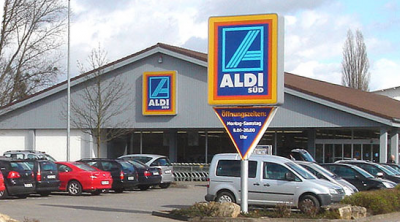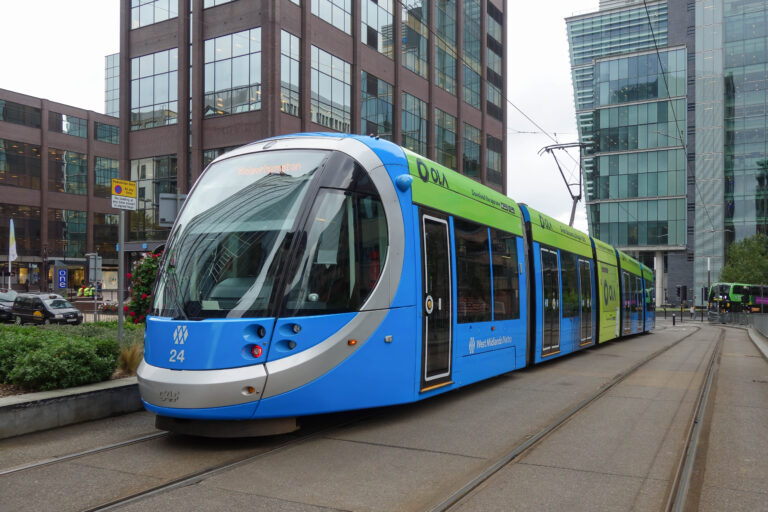A couple of weeks ago, German businessman Karl Albrecht died at the age of 94. He was one of the world’s wealthiest businessmen, and passed away no doubt knowing he’d left quite the legacy. If you don’t know him, he was the co-founder of Aldi: the discount supermarket chain launched in the 1960s, which is finally making it big in the UK of the 2010s.
For many years, Aldi had something of a stigma about them, due to their incredibly low costs. However it seems the public have now learnt to love and identify with them. As a company with a slick supply chain process at its heart, its long-term brand perceptions are finally looking positive. With the relentless power of word of mouth helping them to not only buck the trend of major supermarket’s prospects, but steal their market shares, they are now securing a loyal customer base that only continues to expand. From being a relatively small business, it has been transformed into one of the most successful and valuable retail business chains in the world – with an annual estimated turnover of €53 billion, comprised of 9,000 stores with 100,000 employees, across 18 countries.
This all comes in an era in which the food, drink and retail sectors are under closer global scrutiny than ever before. From responses to public health issues, food security, and efforts to reassure consumers and regulators of their supply chain integrity, effective communication has never been more important.
So as this seemingly relentless surge in discount retailing popularity continues, this all begs the question: is it just Aldi’s low prices in a period of economic uncertainty that has played to their strengths, or is the power of communication and public relations also key to their success?
Economics and a PR strategy
In increasingly competitive markets, consumers have a greater choice over where they buy their goods and services. For an organisation to meet its business objectives, it has to find out what consumers require, and then identify the best way in which it can satisfy these needs and wants. Creating a competitive advantage can be difficult.
Therefore a unique PR strategy with clear objectives is vital to deliver effective promotional activity. Aldi’s goal is simple: ‘To provide our customers with the products they buy regularly and ensure that those products are of the highest possible quality at guaranteed low prices.’ Their products are sourced from hand-picked suppliers whose products are sold under Aldi’s own brand labels. They generally limit themselves to a basic selection of goods, purchased in large quantity, which are sold at realistic prices and presented in a simple way. Everything from building the store, to selecting suppliers, locations and selling goods, is done to ensure any savings are always passed on to customers in the end price.
With the economic crisis in 2008 came an increased demand for value for money. At the time, market research identified 80% of Aldi’s customer base also shopped at other supermarkets. These customers spent around £20 billion per year in the other stores. Aldi’s acted, and altered their PR strategy to focus on growing their UK grocery market share, and encourage customers that are already familiar with the brand to shop at Aldi more often.
It has delivered this by looking to demonstrate that Aldi brands are of equal quality to well-known brands, such as Heinz and Fairy Liquid. Aldi ran blind taste tests amongst a cross section of shoppers. These confirmed that the majority of consumers that liked the famous brands also liked Aldi’s brands. These findings formed the basis to its successful ‘Like Brands, Only Cheaper’ PR campaign, which provided a launchpad to communicate its quality and value messages effectively.
Aldi’s website and proactive social media output also encourage two-way communication with customers, offering the opportunity for them to assess opinions about the brand. Aldi developed the www.likealdi.co.uk micro-website to further encourage brand engagement with the ‘Like Brands’ TV campaign. The site provides consumers with the opportunity to upload their ideas for the next Aldi TV campaign. One objective of its social media has been to create ‘Aldi Advocates’: consumers who recommend Aldi to others, through stimulating interactions about the high quality and low prices of Aldi products.
A further element to its PR activity has been to highlight the quality of Aldi’s products through third party endorsements. In recent times, Aldi has entered over 1,000 of its products into awards: such as the Grocer Golds, Pizza and Pasta Awards (PAPA) and the British Frozen Food Federation Awards. In 2012, Aldi was awarded ‘Best Supermarket’ by consumer Watchdog ‘Which?’, and has walked away with The Grocer’s ‘Best Supermarket’ title for the last two years. Further positive endorsements on TV and in the press reaffirm the message. For example, Aldi’s Christmas pudding was awarded runner-up and acknowledged as a ‘bargain’ in a 2013 taste test comparison for Good Housekeeping magazine. It also beat luxury retailer Fortnum and Mason, the Queen’s Grocer, to win a survey of the nation’s best mince pies.
It is this eye on effective public and media relations that has provoked positive press exposure. In comparison to its competitors, Aldi has secured record media coverage. Journalists from newspapers such as The Grocer, The Financial Times and The Times have carried out exclusive interviews with Aldi’s Group Managing Directors over the last three years, with articles leading on their record breaking sales results, boosting consumer interest to unprecedented levels.
All of this has seen its perceptions skyrocket in recent times. On YouGov’s 2014 mid-year BrandIndex, Aldi now tops the list for the first time, mirroring the shockwaves it has sent through the sector, leaving established names such as John Lewis, Dyson, Waitrose and Sainsbury’s in its wake.
The future
So with sales growth up and brand perceptions rising, where next for Aldi? In June it announced the addition of Wagyu beef into their chain: a product typically sold by luxury stores and gourmet butchers, costing about £100 per kilo. However Aldi are going to be selling the beef for £25 per kilo, thanks to their business model. By offering luxury food, Aldi are hoping to lure middle and upper income shoppers from the big supermarkets – which clearly seems to be working, with Aldi announcing a 32% year-on-year increase in sales, and a 4.8% market share that places it right behind Waitrose.
However, can this juggernaut continue on its merry course? History tells us that we should be wary of one organisation winning a short-term price battle. The bigger question is: can they win the long-term supermarket war, and topple the multiple giants? To do this, maintaining and developing their type of strong brand differentiation will be key.
What is playing in their favour is that of all the discount supermarkets, Aldi have managed to remove their historical stigma because of a simple PR message: ‘Like brands only cheaper’, and more recently encouraging people to ‘Swap and Save’ – swapping supermarket to save money. These campaigns have increased Aldi’s sales per store by more than 100% over the past three years, through securing more loyal customers. Its multi-channel PR activity is engaging consumers and delivering positive feedback.
Whatever strategy its competitors use in response, they have at least received a wake-up call from a new breed of demanding UK consumer. They will certainly need to sharpen up their own messages, if they are to reclaim their lost territory.
Paul Gough is a Senior Account Executive for PLMR. He currently provides strategic communications for the UK’s largest redistributor of surplus food, and has previously worked in customer service for Harrods: the largest department store in Europe.




